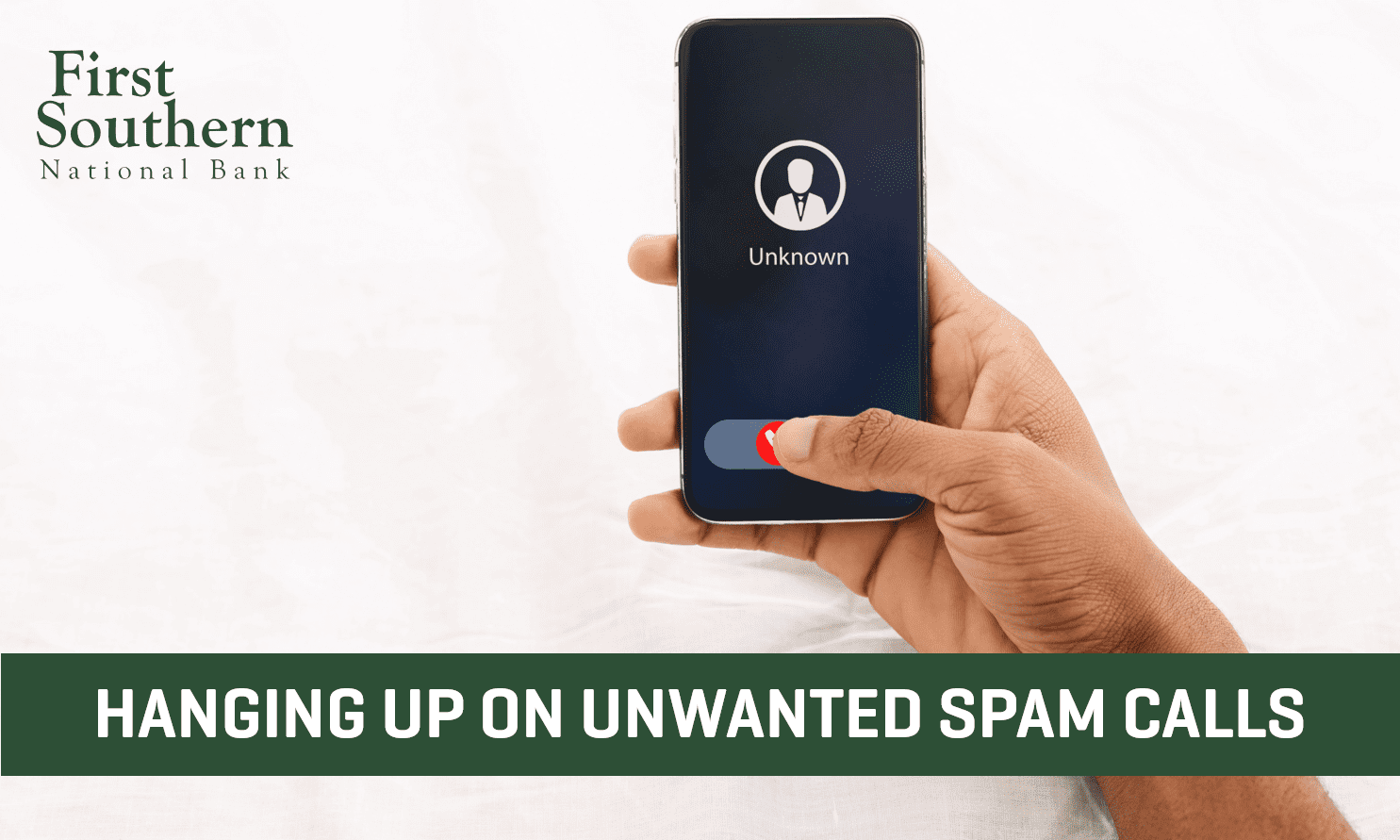Are you receiving an increase of unwanted calls and texts each day?

Unwanted calls – including illegal and spoofed robocalls – are the FCC’s top consumer complaints. I knew I wasn’t alone, and the number of unwanted calls and texts that I receive daily continues to increase. Most calls I receive use the same area code, or even my same phone number.
So how do scammers do this?
Advanced technology allows telephone numbers to be “spoofed” or faked to appear on caller IDs as a legitimate and typically a local phone number. Likely the call is originating from a different location, usually overseas, but that is nearly impossible to determine. Scammers can spoof any real or fake phone number making it appear that they are calling from your area code, a government entity, or even your phone number.
According to Attorney General, Daniel Cameron, the technological resources to trace telephone calls or legal authority to initiate wiretaps do not exist. While the vast majority are illegal scam calls, you may also receive telemarketing calls from legal telemarketers.
You have several options when it comes to these unwanted calls, but the best way to combat these calls is to simply hang up.
Hang Up
Unless you are expecting a call, a good practice is never to answer calls from unknown numbers. If you do answer such a call and realize it is spam, hang up immediately. Never hit any requested buttons, and do not respond to any questions.
Add Your Phone Number to the Do Not Call Registry
Kentucky’s No Call Law allows Kentuckians to reduce the number of unwanted telemarketing calls invading the privacy of their homes, with some exceptions. To be protected by the law you may sign up your home, and wireless telephone number(s) on the National Do Not Call Registry. This is a free service to Kentuckians as part of the National Do Not Call Registry. Once you have signed up your home and wireless telephone number, you will remain on the No-Call list forever, or until the phone line is disconnected or you ask to be removed.
Block Calls
Mobile phones, landlines, and home phones that use the internet (VoIP) each have their own call-blocking options.
Mobile
A standard feature of many cell phones comes with a feature that allows you to block calls from specific numbers. If you notice a spam number frequently calling, add it to your blocked calls. Also, most mobile phones have features like Do Not Disturb, where you can set hours during which calls will go straight to voicemail. Some mobile phone companies have started implementing call-labeling services to show categories like “spam” or “scam likely” on your phone’s display for incoming calls, or automatically blocking calls connected to suspicious calling patterns. You can contact your mobile provider to learn more about the blocking and labeling solutions available to protect you from unwanted and illegal calls. Some services are free, but be mindful that others may charge.
Traditional Landline
As with mobile, the first line of defense is to check with your service provider to find out what about options they offer or if there’s a recommended service for blocking and limiting unwanted calls. As with mobile blocking services, some are free, but others may charge. If your home phone is a traditional landline that doesn’t use the internet (VoIP), you can buy and install a call-blocking device. Call-blocking devices are typically small boxes you attach to your phone that can assist with stopping unwanted calls, diverting calls to voicemail, and gives options for real callers to get through still.
Find out more about blocking calls by visiting https://www.consumer.ftc.gov/articles/how-block-unwanted-calls or https://www.fcc.gov/call-blocking.
Report Unwanted Calls
Whether or not you are on the Do Not Call Registry, you can report unwanted calls at ftc.gov/complaint. The FTC wants individuals to report the number that appears on your caller ID, regardless if it is a spoofed or fake, as well as any number you’re told to call back. The FTC analyzes complaint data and trends to identify illegal callers based on calling patterns. Any additional information reported, like names or numbers you’re told to call back, can be used to track down scammers as well as partnering with phone carriers to implement call-blocking solutions. Your reports also help law enforcement identify the people behind illegal calls.
You can find out more by visiting https://ag.ky.gov/Priorities/Protecting-Kentuckians/Consumers/Pages/Unwanted-Calls.aspx. In addition, the FCC offers many great tips on avoiding phone scams at https://www.fcc.gov/consumers/guides/stop-unwanted-robocalls-and-texts.



